Things & stuff. :P
This is why the closed time loop didn't work for me, there are so many faults with it. Elpis should've branched into an alternate timeline. Despite the WoL detailing the future to Venat, one in which we still had not been successful in stopping the Final Days, she still chose to not do anything differently. I know the theme is faith and hope, but when you are told your choices didn't save your civilization and have still failed to save civilization 12k years into the future, wouldn't you try something else? I also notice that Azem not joining her was never addressed, so I have to wonder if even her protege disagreed with her.
The Sound wasn't a product of the Ancients, it was specifically Hermes. It was evident early on that he was an anomaly (essentially the only depressed person in a society of happy people) and in the wrong line of work for his mental health. This inevitably tainted Meteion before they were ever sent out into space. I suspect they brought Hermes' negative energy to the worlds they visited and possibly caused a disruption in the dynamis of other stars that resulted in increased feelings of despair. Emet somewhat touches upon that by questioning Hermes' method being flawed to produce unfavorable results.
-
12-08-2021 09:20 PM #91(5)
-
12-08-2021 09:42 PM #92Player
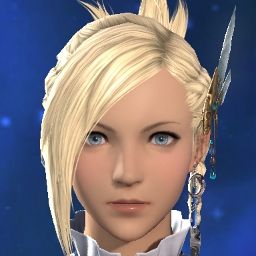
- Join Date
- May 2015
- Location
- Valnain
- Posts
- 828
- Character
- Wind-up Antecedent
- World
- Zalera
- Main Class
- Rogue Lv 100
Regarding a certain character's long term planning:
I believe that the abridged scene where we witness Venat walking through post-Final Days Amaurot was meant to showcase the moment she lost hope in changing her future. It was witnessing the masses of her people, broken by despair, offering up the second batch of lives to Zodiark. The first set could not be avoided—Etheirys needed Zodiark to shield the world. But the second set would never have to have happened if the people of Etheirys had accepted the suffering they endured and moved to restore their world on their own. By utterly rejecting her message and turning to Zodiark for salvation again, they proved—in her own words—their weakness. They would never be strong enough to stop the Final Days for good.
Plus, while she never learned all that she did from us, she did learn two important things from us: She would lead a rebellious faction opposed to further sacrifices to Zodiark, and she would become Hydaelyn, and in sundering Zodiark would prevent the third set of sacrifices—the purpose of which was to free the first and second sets from Zodiark's control in exchange for a portion of the life Zodiark created with the second set.
Now, here's where I get into speculative territory: On our journey across the moon, we run into several Amaurotine shades. Some of them are fairly amicable and contemplative. But others are full of rage and despair. I believe the former shades represent the first set of sacrifices, while the latter represent the second set. And when we are finally within Zodiark's domain, it's strongly implied that Zodiark's will is not his own, but the collective wills of the lives sacrificed to him. It's not until Fandaniel successfully shuts out all of the voices that he can control Zodiark himself.
Now, I ask you: What would happen to Zodiark if all the noble souls who gave themselves up to empower him were removed, replaced with unwilling or unknowing sacrifices?
The answer I came up with is that Zodiark would come to embody the third set's wills, and without anything to balance out his newfound despair, he would soon bring an end to his own existence.
But that's just what I think. I can hardly prove it.(13)
-
12-08-2021 10:22 PM #93
About the ancients
Yeah the closed time loop also did not work for me (but time travel is hardly something that I like). I really thought that maybe they would change their outcome and later would help our fight. Even if they are worse against Dynamis not every Ancient lost control of their magic. But it was not meant to be that way sadly.
Well not directly a product of all the Ancients but a product of one of their own. (So it was not a complete outside threat) And Hermes was suffering that way because seemingly a huge amount of the Ancients threated the new created life as something that can easily just be undone. Even Hythlo just casually makes a robe out of two butterflies. Even we are threated much different even though we have a soul and thus should not just be magical construct. At the same time if something is way too dangerous then even in our world we put it down, for the safety of other living beings. Hermes seemingly does not understand that too. Yet at the end he turns around and is ready to destroy the whole planet...including all those animals that he helped create. Really a messed up situation.
@Rosenstrauch
About Zodiark: Yes that is how I interpreted it too. When they called themselves the Will of the Star I started to wonder if Zodiark would still be the same and even listen to the Ancients word if the souls got swapped out with unwilling sacrifices.
About Venat: Yes at that time it was too late. What of course makes it harder is the timeline of it all. The Ancients think in whole different time periods. So who knows how long it still took for the final days to happen after our visit. Could have been hundreds of years or just a few months. But she had to have time to come up with the ship plan, to create the rabbits and more. I guess a lot of stuff could have been learned from us (since we have no idea how much we really told them) but she still needed to put everything in order. And seemingly she never thought about trying to at least tell Hades and Hythlo the truth. I just dont understand the reasoning for keeping it "fair" towards Hermes.(2)Last edited by Alleo; 12-08-2021 at 10:31 PM.
-
12-08-2021 11:42 PM #94Player
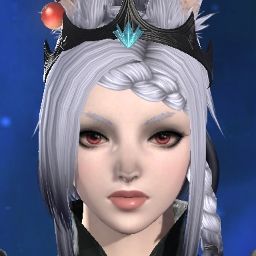
- Join Date
- Jul 2015
- Location
- Meracydia
- Posts
- 3,883
- Character
- Lythia Norvaine
- World
- Gilgamesh
- Main Class
- Viper Lv 100
But whose plan is it, really?
Remember that Venat had never met her successor prior to Elpis. She only recognizes you based off her signature traveler's enchantment which she applies in the future.
Likewise, you don't know who Venat is until you meet her in the future. So when Amaurot historically broke out into factions and in-fighting, you would have had no reason to pick either side. And as we know, you ultimately end up rejecting both and leaving your seat on the convocation empty. And when you meet her on the ship travelling to Sharlayan in her original form, you still don't recognize her as Venat (again, because although she's met you before, you haven't met her yet.)
When you recount the events leading up to the Final Days, Venat is the least skeptical out of the three. Her main objection to your story is that she can't understand her future actions. Would it not have been simpler to hunt down the root cause, rather than simply sit around making provisions for spaceflight so that they can all flee the star? This is why her conversation with you at the top of Elpis is critical. When she asks you to describe the beauty of the future in which you come from, and what you've set out to protect, and asks you if it's all worth it. She's not asking if your future is the right course of action. She's asking if it's the one that you believe in.
That's also what makes the scene on your return back so powerful. Everything that she's witnessed to the present day - Hyth's sacrifice to become part of Zodiark, Emet's internal suffering, the destruction of her civilization and everything she holds dear, the consequences of her sundering and the subsequent suffering and mortality of her people - all these events she has the foresight and knowledge to be able to prevent or alter. But she doesn't. Because she's chosen to believe in the future which you've told her about. Because she's chosen to believe in you, her successor. This doesn't require 4D chess. She does everything exactly as you told her she would do it all along, because of that belief, that faith. Azem's strength isn't planning, it's improvisation, and reckless optimism that it will all turn out for the best in the end.
Knowing what you know now, if you could start over, would you live your life any differently? At the end of your journey, when you look back, was it all worth it? Can you still see the beauty of life beyond its scars?
With regards to Meteion's assessment/recollection of other worlds' fates - it's worth remembering that her assessment is going to be skewed because she magnifies all of the negative emotions that she encounters, and she's more than just a passive observer. I can't remember specifically when this is, but during the latter part of the final area, someone (Raha, maybe?) notes that the destruction of many of these worlds were perhaps accelerated or even brought on by Meteion's presence. Either way, she raises a lot of really interesting questions about the origins of the Void and Voidsent.
(0)
-
12-09-2021 12:20 AM #95Player
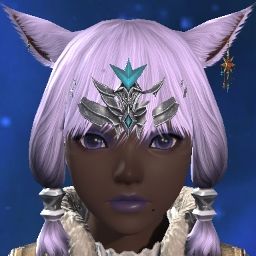
- Join Date
- Aug 2014
- Location
- Gridania
- Posts
- 1,150
- Character
- Qt Melon
- World
- Cactuar
- Main Class
- Bard Lv 100
So about Hydaelyn and Emet
I'm hoping that the Pandemonium will answer how Emet Escaped Sundering. Speaking of - did Hydaelyn also sunder herself?
If so. Would destroying source Hydaelyn destroy the others, like Zodiark ?
Also while I absolutely understand the symbolism. The test to be able to defeat Dynamis is defeat Hydaelyn? - Considering her whole reason for sundering was so that people could defeat and perceive dynamis energy...how does defeating her really prove anything technically? She can detect her spell on Meteion...but that still doesn't mean her aetheric being can suddenly work against dynamis
I mean yeah we can go with the idea our ability to wield both is why we can defeat her as proving of that test...but still there are no guarantees in life that's what caused her defeat.
I mean it's great symbolism but seems pointless upon thinking about it
About the final boss fight
Anyone else feel mechanically the end of the boss fight was "we know you've been playing since the wee hours so we're gonna make this part easier for you so you can go to bed"(1)Last edited by QT_Melon; 12-09-2021 at 12:50 AM.
-
12-09-2021 12:28 AM #96Player

- Join Date
- Mar 2020
- Location
- Vila Nova de Gridania
- Posts
- 139
- Character
- Koil Megatherion
- World
- Louisoix
- Main Class
- Reaper Lv 90
That paragraph!
It's my own fault because I created my own (high) expectations and fan-fiction, but I was really hoping that in the end, the source of it all was something Jenova-like (hell, I even thought it would be called Jenova!), dormant in the core of the world a la Lovecraft. Also the whole "every world we met died so we got no answer to Hermes' question" kinda banalised the whole deal... treating Etheirys (spelling?) like just another world to the slaughter.(1)
-
12-09-2021 01:24 AM #97
Allow me one objection, please (and pardon me if I'm understanding wrong)
Venat has met her successor before. In fact, she was our very own mentor and left the seat for us to assume the mantle (she wished to be free from the Convocation boundaries - a sense of disconfort the latter Azem also expresses posteriorly, as we learnt during ShB. Alas, like master, like pupil).


 (11)
(11)
-
12-09-2021 02:02 AM #98Player

- Join Date
- Jul 2015
- Location
- Meracydia
- Posts
- 3,883
- Character
- Lythia Norvaine
- World
- Gilgamesh
- Main Class
- Viper Lv 100
Hmm... interesting.
Hm, good point. But even if she can't recognize the color of your soul like Emet and Hyth, why doesn't she at least recognize who you are in Elpis based on your physical appearance? She claims that you've never met before when you first encounter her on the island. Emet at least seems to know what you look like, based on his comments when you first meet him. Or is that because everyone wears masks?(0)
-
12-09-2021 02:38 AM #99Player
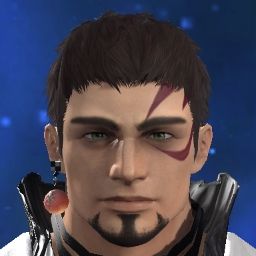
- Join Date
- Sep 2013
- Location
- Uldah
- Posts
- 480
- Character
- Varsir Ishtear
- World
- Gilgamesh
- Main Class
- Pugilist Lv 100
Answer to question
Emet has Soul Vision, Venat (as she originally was) doesn't seem to have it. Also, you have to remember we are reincarnated Azem. There's no guarantee we would be reborn in the same looks as we were past Azem. After all, you can fuse with Ardbert fine despite not looking the same (unless you choose to have default midlander of course).(3)The rains have ceased, and we have been graced with another beautiful day. But you are not here to see it..
-
12-09-2021 02:53 AM #100
being a "Normal person" for one instance spoiler....
I like how we are given a moment to play as a Garlean for a moment. It gives a perspective on how life fighting is for Garleans compared to every other people living outside of the Garlean Empire due to Garlean's lack of magical abilities.
From this one instance we experience how difficult it is just to fight. The lack of Magical abilities also appear to deny them the ability to passively heal outside of combat. This implies being born with Magical abilities also provide people with passive self healing abilities to their body when their bodies are not being strained by tense events such as combat.
However, due to Garleans lacking magical abilities they do not have this type of rapid self heal when their body is in a calm state. Thus they have to depend more on med kits and other self healing tools to cover up any injury sustained.
In a way Garlean body is very much similar to our own body in our world. They must do everything we do to heal and improve our own strength. Those with magic abilities on the other hand have a much easier since their magical abilities enhances their body in ways our bodies cannot.
(11)




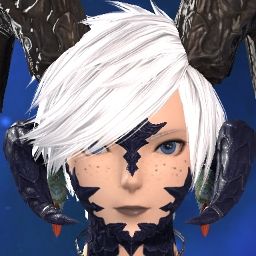

 Reply With Quote
Reply With Quote










